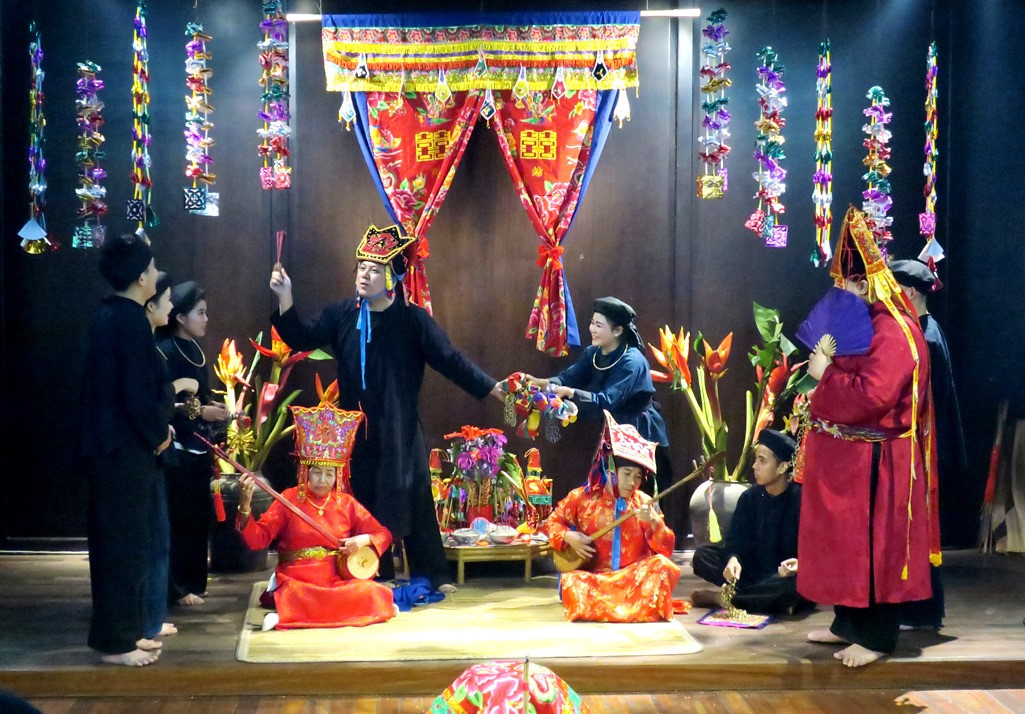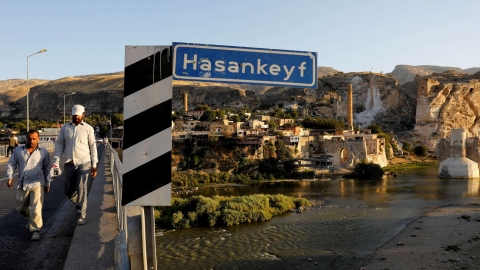At its 14th session in Bogotá, Republic of Colombia, on December 13, 2019, UNESCO officially recognized the Then ritual practices of Vietnam as an Intangible Cultural Heritage.
According to UNESCO, the practice of Then "is part of the spiritual life of the Tay, Nung, and Thai people, reflecting the relationship between humans, the natural world, and the universe." The Then ritual expresses the solidarity and cultural identity of these ethnic groups, from customs to musical instruments, dances, and music. Thanks to its socio-cultural functions, Then contributes to moral education, lifestyle guidance, and raising awareness of the importance of the heritage of ethnic communities not only in Vietnam but also in many countries around the world.
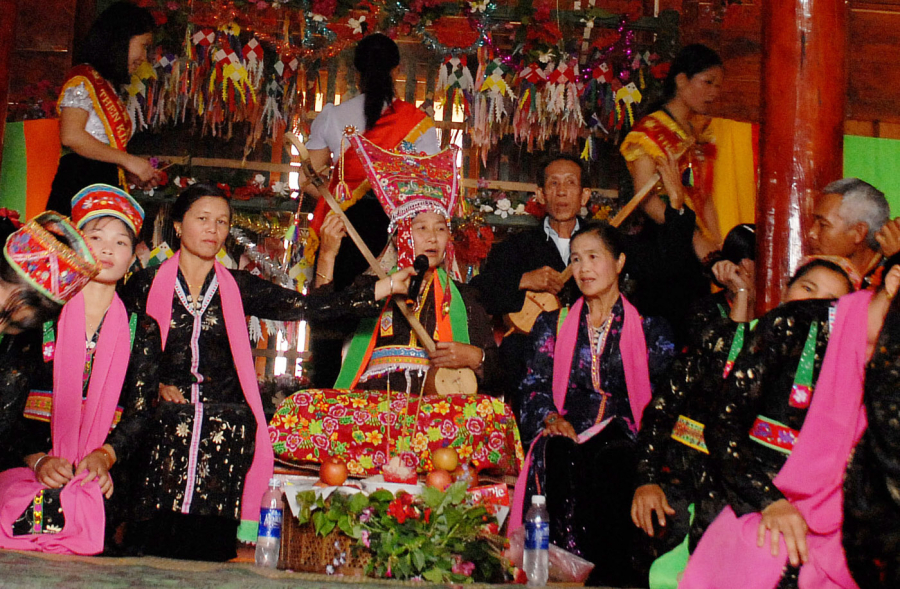
According to the Department of Cultural Heritage, UNESCO's recognition of the Then ritual as a heritage of humanity affirms the rich cultural identity of the ethnic groups in Vietnam. Ms. Le Thi Thu Hien, Director of the Department of Cultural Heritage, also pledged to implement necessary measures to protect the values of the Then ritual practice.
The Then ritual depicts the journey of the Then shaman (male or female) leading a group of spirit soldiers from the earthly realm to the heavenly realm to offer sacrifices and make requests during ceremonies for peace, healing, good harvests, and New Year celebrations.
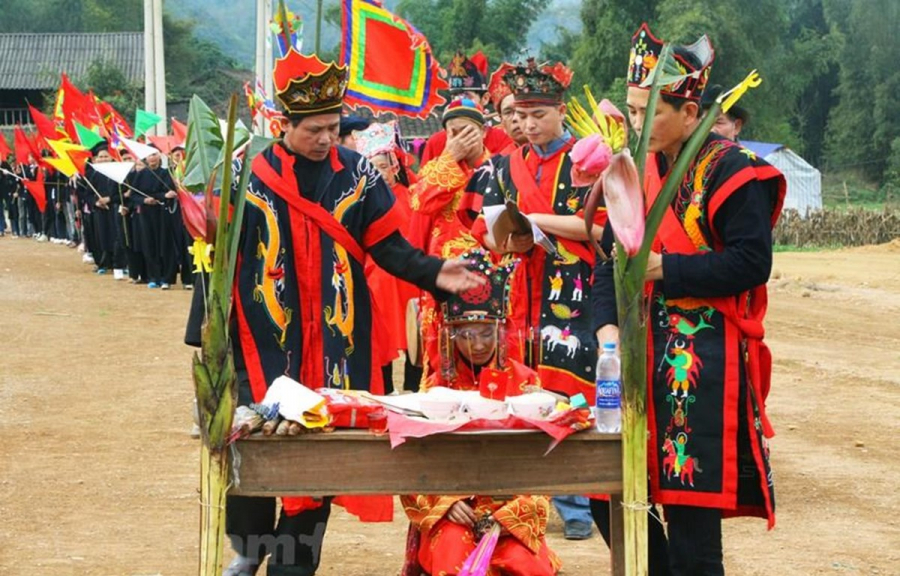
When the Then shaman begins singing and playing the zither, the journey begins. Depending on the purpose of the ritual, the Then shaman will prepare offerings and pray before the altar of different local deities. The Then shaman often uses objects such as exorcism swords, yin-yang staffs, bells, etc., to perform the Then ceremony at the client's home, outdoors, or at the Then altar in the shaman's house. The Then shaman wears ceremonial attire and sings in their ethnic language while playing the zither, shaking rattles, fanning themselves, with a group of women dancing as accompaniment.
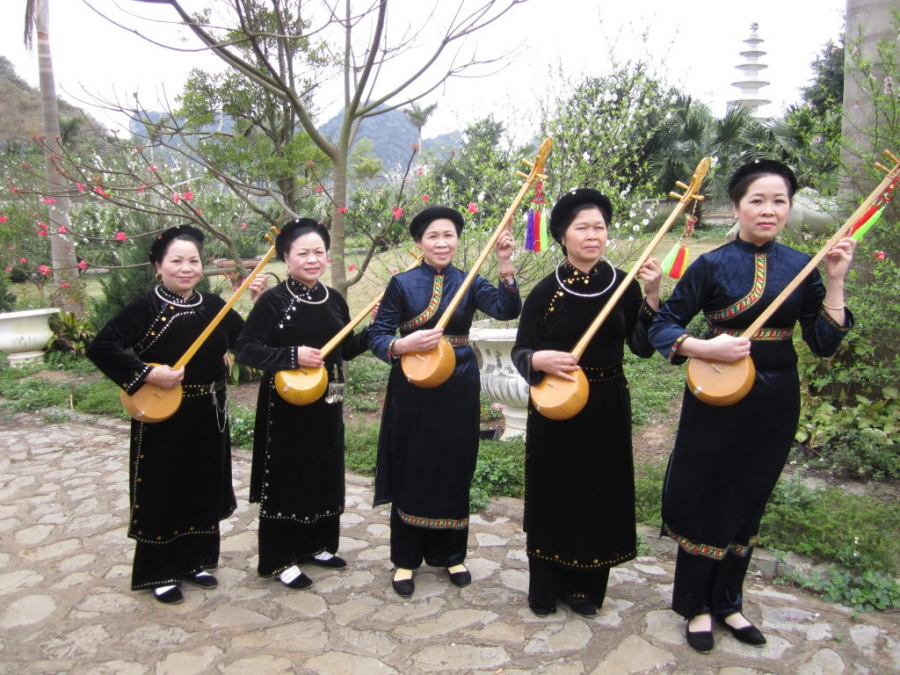
Then rituals are maintained and passed down through generations through oral tradition. According to statistics, Then masters perform approximately 200 rituals each year. The practice of Then among the Tay, Nung, and Thai people is mainly concentrated in the northeastern provinces (Bac Giang, Bac Kan, Cao Bang, Ha Giang, Lang Son, Quang Ninh, Thai Nguyen, Tuyen Quang) and the northwestern provinces (Dien Bien, Lai Chau, Lao Cai).

 VI
VI EN
EN



